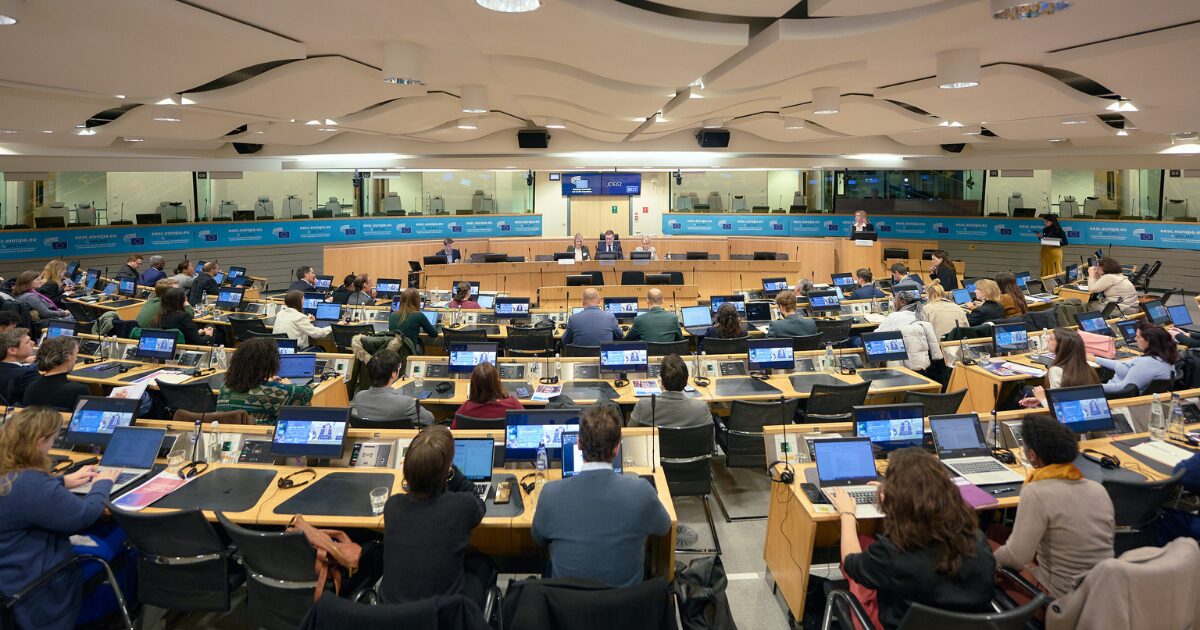The European Democracy Shield
The European Democracy Shield initiative will focus on strengthening information integrity in Europe, by tackling such issues as disinformation and election interference.
The European Partnership for Democracy and the democracy support community welcome this very timely initiative of the new European Commission as a coordinated effort to support democracy in and around Europe. This initiative is particularly relevant in the current context of global democratic backsliding.
Why is a European Democracy Shield needed?
Democracy today is facing significant threats with the strenghtening of authoritarian regimes and the rise of populist politics in established democracies. The information space is a particular target for anti-democratic activities, which include foreign information manipulation and interference (FIMI), repression of media freedom and pluralism, and growing political influence from Very Large Online Platforms (VLOPs).
To address this, the European Democracy Shield is expected to focus on four key areas: countering disinformation, strengthening information integrity in election campaigns, enhancing societal resilience, and boosting citizen engagement.
Given the broad range of threats faced by democracy, the European Democracy Shield should employ a holistic approach and recognise that strengthening democracy will by default enhance Europe’s security as well.
Our priority areas for the European Democracy Shield
To ensure that the European Democracy Shield effectively responds to the challenges faced by democracy in Europe, it must address a comprehensive set of priorities:
- Effective implementation and enforcement of existing legislation
- Combatting disinformation
- Support to the media sector
- Encompassing a global dimension
- Ensuring an enabling environment for civil society
- Democracy at the core of the EU’s security and defence strategy
- Strategic coordination between different Directorates, Departments and Agencies
- Innovating democracy
EPD, along with 66 other organisations, is advocating for targeted action within these areas, including the demonetisation of disinformation, strengthening funding mechanisms for public interest media, and allocating resources to ensure the effective implementation of key legislation, such as the Digital Services Act, the AI Act, and the European Media Freedom Act.
Do you want to know more about our work on the European Democracy Shield? Contact our Policy Manager at [email protected].
A timeline of the Shield
The European Commission President, Ursula von der Leyen, pitches the European Democracy Shield at the Copenhagen Democracy Summit
The first publication of the European Democracy Shield is expected
The first report from the European Parliament’s Special Committee on the European Democracy Shield is expected
A breakdown of the Shield
What is the European Democracy Shield?
What is the European Democracy Shield?
The European Democracy Shield entails the European Commission’s overarching agenda on democracy support. It follows up on the European Democracy Action Plan (EDAP), which was the main democracy agenda of the previous Commission. While the EDAP had a strong legislative component, with a focus on key legislations such as the Digital Services Act, the AI Act, and the European Media Freedom Act, the Shield will focus more on guidelines and implementation. As such, it entails many of the political priorities for the Commission’s democracy support work.
Why did the European Commission propose a European Democracy Shield?
Why did the European Commission propose a European Democracy Shield?
After a long trend of growing democratisation across the world, the number of autocracies has been on the rise for several years, with V-Dem noting that autocracies outnumber democracies for the first time in 20 years. Not only has this affected individual countries and the balance of power in the international community, many of these autocracies are now exporting their model of governance.
In this context, EU democracy has not been left unaffected. Within the Union, several countries have marked democratic regressions, including shifts to outright authoritarianism. In addition, specific fields such as media freedom and pluralism – a key marker of democracy – have been steadily on the decline in a series of countries.
To prevent further regressions and address current challenges to EU democracy, the European Democracy Shield is a coordinated effort across Directorates to turn the tide of democratic regression within the Union.
It also aims to further the implementation of key legislations passed in the previous EC mandate affecting the field of democracy, such as the Digital Services Act (DSA), the AI Act, the European Media Freedom Act (EMFA), and others.
What are the key issues at stake?
What are the key issues at stake?
The Shield is broken down into four main pillars:
- Countering disinformation and foreign information manipulation and interference
- Ensuring the fairness and integrity of electoral processes and the strengthening of democratic frameworks and checks and balances, including free, plural and independent media and civil society organisations
- Strengthening societal resilience and preparedness (including digital and media literacy, critical thinking.)
- Fostering citizens’ participation and engagement
Who are the key stakeholders in the EU institutions?
Who are the key stakeholders in the EU institutions?
The European Democracy Shield lies within the portfolio of the Commissioner for Democracy, Justice, the Rule of Law and Consumer Protection, Michael McGrath.
Given the thematic focus of the European Democracy Shield, two of the main Directorates dealing with its development and implementation are DG JUST and DG CNECT.
Within the European Parliament, the Shield portfolio is primarily covered by the Special Committee on the European Democracy Shield (EUDS). However, many of the thematic areas covered by the Shield concern a series of other committees, most notably CULT, LIBE, IMCO, AFET, SEDE, and ECON.
Our publications on the European Democracy Shield
EU DOCUMENTATION
EU DOCUMENTATION
Special Committee on the European Democracy Shield in the European Parliament
GREAT READS
GREAT READS
- Heinrich Böll Stiftung, Drowning in disinformation: How homegrown state-sponsored disinformation threatens EU democracy, here.
- Moore L., Köhler E., Cook C. (2024), The Media Viability Manifesto, here.
- Reporters Without Borders (2025), USA: Trump’s foreign aid freeze throws journalism around the world into chaos, here. Tracking-Free Ads Coalition, The costs of tracking ads, here.
Cover photo: © Scott Mohn on Flickr.

